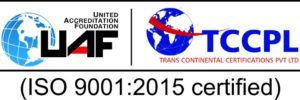I have been a part of NTPR, as a Psychology Intern for a few months now.
A Reputed Institution.
These few months have been nothing but a journey of incredible learning and everyday experience. The courses which are provided are brilliant, thorough, and knowledgeable. Opting for two courses at a time complement each other and benefits. The trainers are well spoken, diligent and inventive. There is nothing better than a workplace which is comfortable, systematic and colleagues who work with ardent passion. NTPR is that workplace for you. I am delighted to be working here.
NTPR offers, tailor-made programmes. which are creative, exclusive and are well structured. The trainings provided by our trainers include psychological sessions. Which helps in acknowledging various aspects in personal outlook, as well as in professional outlook. The sessions are monitored according to client’s progress. Various questionnaires, activities and modules are included in sessions to have our clients engrossed.
To Develop your personality, speaking skills and interacting competency through profuse psychological trainings, is what we offer at NTPR. In the end of the day, acquiring undivided attention at trainings benefits more than composed trainings.
Written by:
Devika,Psychology Intern




